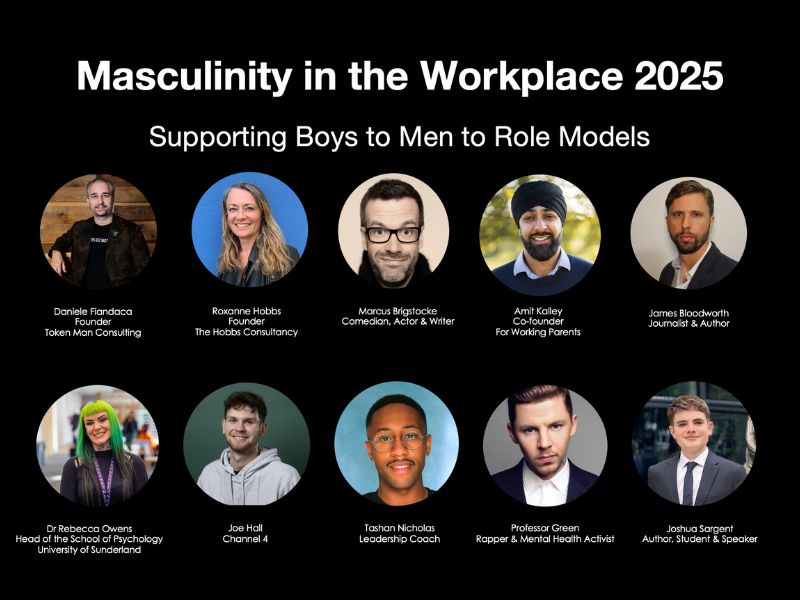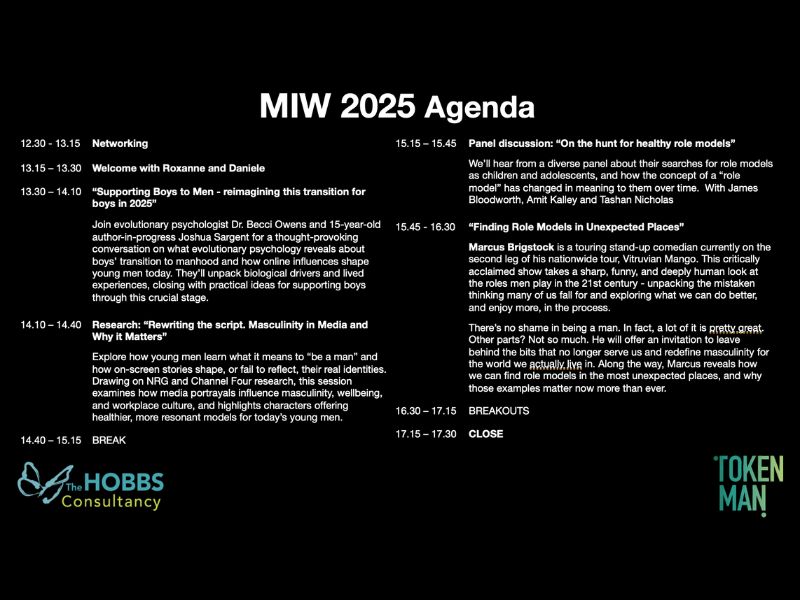
Article provided by Laura Dallas, Head of product for workplace wellbeing specialists Champion Health
This year, I led a team at Champion Health to create The Workplace Health Report: 2022 in which we analysed health data from over 2,000 professionals across a range of demographics and sectors.
In doing so, we discovered some fascinating insights into the health of our workforce. And one area which quickly drew our focus were the disparities when it comes to mental health and gender.
In this article, I’m going to outline our key insights into gender and mental health – and what that means for managing mental health at work, whether you’re a leader or employee.
Mental health exists on a continuum, from surviving to thriving. The pandemic, and everything that has come with it, has seen many people existing towards the surviving end of the continuum, leading to high levels of anxiety, depression and stress across all genders.
However, the Workplace Health Report: 2022 revealed that female professionals are more likely than males to experience mental health difficulties, by a considerable amount.
For example, women were almost twice as likely to experience symptoms of depression and anxiety, with 62% of those experiencing anxiety, and 61% of those experiencing low mood, being female. These symptoms were measured using clinically validated questionnaires.
And while there may be many reasons for this, these results take on added significance when considering research from Deloitte in 2021, which found that females have fared worse throughout the pandemic due to factors like increased workload and household responsibilities.
These results only highlight the need to include diversity and inclusion in organisational approaches to mental health, as it’s unlikely any wellbeing strategy will be effective without it.
 Seeking support
Seeking supportGiven the prevalence of stress, anxiety and depression in the workplace, it’s important that organisations provide support where necessary. In fact, according to the Harvard Business Review in 2021, mental health support has moved from a nice-to-have to a must-have for organisations.
But while many organisations have taken the important step of putting support in place, our data reveals that there is still a reluctance for professionals to engage.
This is a huge barrier to improving employee wellbeing, and one that organisations need to address to create mentally healthy workforces.
We can reveal that less than 1 in 10 employees are currently seeking support for their mental health (including counselling, talking therapies and medication), despite over half experiencing feelings of anxiety or depression.
And there are also clear differences in help-seeking behaviours between males and females.
Our data highlights that females are far more likely to seek support than males. While this might partly be due to a high prevalence of poor mental health in females, from our data, we would also expect more males to be seeking support if help-seeking behaviour was the same.
This suggests that, despite the mental health conversation opening up in a lot of organisations, male employees are still finding it difficult to reach out for help and talk about their mental health, even when they’re struggling.
To address these issues raised, employers must recognise the different pressures faced by different demographics. In this instance, our data makes a strong case for additional mental health support for women (and a focus on opening up the conversation for men).
But we also know that gender is not the only workplace demographic in play. Ultimately, this is a reminder that a one-size-fits-all approach will not be effective given the variance in support requirements for each employee.
That said, there are small things we can all do to help open up the mental health conversation, helping more men to seek support in the first place, while further supporting women that are struggling with poor mental health.
It can be as simple as asking every employee or colleague how they’re doing. If they’re thriving, that’s fantastic – find out what keeps them there and make these a priority.
And if they’re struggling, find out how you can better support them and their individual needs. This will usually involve signposting onto relevant services, including their GP or mental health charities. More information can be found in this guide: How to talk about mental health at work.
Whether you’re a leader or employee, you can help to open up the conversation around mental health and make the support that is available visible, accessible and stigma-free.
Laura has worked in a number of mental health settings across her career, from front-line NHS services to academic research facilities. As Head of Product at Champion Health, she is now responsible for ensuring Champion’s platform drives market-leading engagement with wellbeing.
November
06nov10:0015:00CPD Accredited Menopause Champion Course
06/11/2025 10:00 - 15:00(GMT+00:00)
Join us on our CPD Accredited Menopause Champion Course Our course includes practical tools, DEI considerations and step-by-step guidance to help Champions feel confident and equipped to offer real support — not just awareness. Here’s what’s included: Understanding Menopause
Our course includes practical tools, DEI considerations and step-by-step guidance to help Champions feel confident and equipped to offer real support — not just awareness.
Here’s what’s included:
Understanding Menopause
– Key stages and common symptoms
– How menopause impacts work and wellbeing
Diversity in Menopause
– Different experiences across cultures, health, age, and gender identity
Managing Menopause
– Overview of HRT, natural options, and practical strategies
Navigating GP Appointments
– How to self-advocate, track symptoms, and prepare for appointments
Supporting Colleagues
– Fostering openness, having sensitive conversations, and making adjustments
Creating Menopause Action Plans
– Step-by-step template to ensure support and inclusion
Championing Inclusion
– Guidance for supporting neurodivergent, disabled, diverse, LGBTQ+, and frontline staff
Your Role as a Champion
– Responsibilities, boundaries, signposting, and building trust
The course also includes:
✅ A Menopause Action Plan template
✅ Navigating GP Appointments document
Plus loads more free resources!
DATE: Thursday 6th November
DATE: Wednesday 17th December
Place: Zoom
Time: 10.0am – 3.00pm
Cost: £395 (including certificate)
19nov10:0013:00MenoMinds – Free Training for Women in Business | Menospace & Minds That Work
19/11/2025 10:00 - 13:00(GMT+00:00)
Introducing MenoMinds – Free Training for Women in Business We’re excited to share MenoMinds, a fully funded programme created by Menospace and
We’re excited to share MenoMinds, a fully funded programme created by Menospace and Minds That Work, supporting women in business, freelancing, or entrepreneurship through the emotional and mental challenges of menopause.
Wednesday 19th November | 10:00am – 1:00pm (UK)
Live on Zoom | 💷 Free (funded by NEBOSH’s Social Purpose Programme)
Menopause can affect confidence, focus and wellbeing — MenoMinds helps you take back control with practical tools and a supportive community.
You’ll explore the CARE Framework:
Includes a digital workbook and invitation to monthly community groups on sleep, nutrition and stress management.
Freelancers, entrepreneurs, and women in small or micro-businesses (under 50 employees).
Facilitators: Haley White (Menospace) and Victoria Brookbank (Minds That Work)
19nov12:3018:00Masculinity in the Workplace - 2025 (In-person)
19/11/2025 12:30 - 18:00(GMT+00:00)
Conway Hall
25 Red Lion Square, London, WC1R 4RL
Brought to you by Token Man and The Hobbs Consultancy. Welcome to Masculinity in the Workplace, designed specifically to

Welcome to Masculinity in the Workplace, designed specifically to engage men with creating inclusive cultures. Marking International Men’s Day, the objective of our event is to give men both the reason and the skills to lean into the conversation, while also providing women and non-binary people with the confidence to engage more men in culture change. Because ultimately we can only make real change by working together.
Date: Weds Nov 19 2025
Time: 12.30pm to 6pm
Location: Conway Hall, 25 Red Lion Square, London, WC1R 4RL
Our speakers will share their insights and experiences, shedding light on the evolving dynamics of masculinity, leadership and culturein diverse work environments. You’ll have the chance to ask questions, participate in interactive sessions, and network with like-minded professionals.
The theme for this year is ‘Supporting Boys to Men to Role Models’. This year’s event will seek to understand the concerns and barriers that are in the way for boys and men, particularly looking at key inflection points in their lives. It will equip parents, leaders, friends and persons of significance in the lives of young men with the tools for self-reflection, effective role modelling and courageous conversations..
It will suggest that status-seeking and risk-taking behaviours are innate as boys become men, look at how this shows up for boys in 2025 and question what support could help these boys have a more positive initiation in to adulthood so that they are ready for the workplace. We know that there is a reverse gender pay gap and that schools aren’t preparing students in the same way to enter the professional workplace – what needs to be done?
We will look at the behaviours that are role modelled by men once they are in the workplace. Is it healthy for us to look for male role models, or is a search for positive behaviours more effective? What can we learn from how men are represented on screen and in the media? And what can we do to support our men once they are in the workplace?
This site is for the in-person experience. Otherwise you can register for the online version here.
FYI – lunch will not be provided

This event is for anyone passionate about creating more inclusive, equitable, diverse and human workplaces, and we welcome attendees of all identities and expressions.
Historically, our audience has included around 60% men and 40% women or non-binary people, with a wide range of roles and lived experiences.
This year, we’re especially keen to welcome CEOs, HRDs, CMOs, Inclusion & Diversity leaders, People & Culture teams, and anyone working to engage men more effectively in their organisations. Whether you’re a parent, people manager, or someone invested in systemic culture change, this event is for you.
By attending, you’ll be joining a growing community of people committed to reshaping masculinity, unlocking allyship, and building workplace cultures where everyone can thrive – from boys and young men to senior leaders and everyone in between.
20novAll DayDigital Transformation Conference
20/11/2025 All Day(GMT+00:00)
Mercure London Earls Court
London
Ready to transform your business in the digital age? The upcoming Digital Transformation Conference UK promises an exceptional opportunity for leaders who want to accelerate change, embrace innovation and shape
Explore how industry leaders are redefining digital and business transformation. Learn proven strategies, gain fresh perspectives, and connect with peers shaping the future of technology and enterprise. Tactical & practical content to drive your transformation efforts.
Throughout the day, delegates can look forward to a diverse programme of content exploring every aspect of digital transformation, business change, and innovation. Hear best practices, lessons learned, and insights into real-world challenges from leaders driving progress across digital, technology and IT.
If you’re a C-suite leader, head of innovation, transformation or IT, this is the place to be. Whether you’re just starting your journey or looking to scale up, you’ll leave with fresh ideas, new contacts and a renewed sense of direction.
